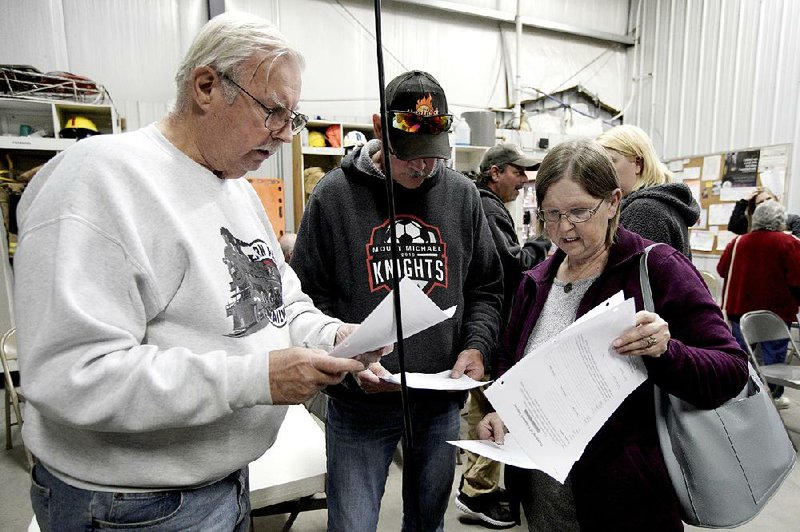WINSLOW, Neb. -- It took only minutes for the icy Elkhorn River to surge over a levee and engulf Winslow. But months after the floodwaters receded, the village finds itself struggling to decide its future -- or if it has a future.
"It's never flooded like that before," said Bill Whitley, 72, who owns a house where his daughter lives in town. "But it will someday again."
The town of about 100 residents is one of a growing number that may face the choice of moving or dying as climate change worsens flood risks, leaving people to accept that their hometowns may no longer be habitable where they are.
Since the creation of a buyout program in 1989, federal and local governments have poured more than $5 billion into buying tens of thousands of properties threatened by persistent flooding to avoid the need for frequent rebuilding.
Many residents have agreed to move to other places, but the relocation of entire towns is still rare.
But that's the choice Winslow now faces, and more may follow. After the 30 years of buyouts, climate change is now putting more towns into danger from rising tides and heavier storms.
Meanwhile, state and federal authorities have imposed restrictions on disaster aid that make it harder for them to rebuild after flooding.
[Gallery not loading above? Click here for more photos » arkansasonline.com/1229winslow/]
"I would say our current weather pattern is making it difficult if you're living in a flood plain area," said Bryan Tuma, assistant director of the Nebraska Emergency Management Agency.
It's unclear how many communities in recent years have been reclassified by the Federal Emergency Management Agency into higher-risk flood zones, but a 2013 FEMA-funded study found the amount of land vulnerable to extreme river flooding would likely increase by 45% by the end of the century.
Winslow residents must raise their homes, leave or restart the town at a site a few miles away and 100 feet higher with government financial help.
"We are going to flood again," said Winslow village trustee and volunteer Fire Chief Zachary Klein, who is leading a relocation effort.
Winslow was incorporated 110 years ago about 40 miles from Omaha, a half-mile south of the Elkhorn River. Most residents are farmers or blue-collar workers.
They've occasionally had to deal with rising water, but nothing like the past decade, which has seen nine of the 10 highest crests in recorded history, including the worst of all in March.
Torrential rains falling on frozen ground poured into the river and sent the normally lazy stream surging into the town and inundating thousands of acres of farmland.
Other towns along Midwest rivers also flooded, but as spring stretched into summer, most at least started to recover.
Winslow, though, looks like a ghost town, with its gravel streets empty and its 48 homes and businesses posted with official warnings against entering.
With many towns pleading for higher levees, the U.S. Army Corps of Engineers has no plans to spend millions of dollars to upgrade Winslow's.
"Even the Corps can't afford to build up levees everywhere," said Rob Moore, an analyst with the Natural Resources Defense Council.
So local leaders found land about 3 miles away on a hilltop and negotiated a price. Klein hopes to have the purchase finalized by February so crews can begin putting in infrastructure, initially along a single street. Houses would be built or moved in, starting as soon as late next year.
Then would come the community structures "that make a town a town," Klein said -- including a community center, post office, fire station and even Smiley's, the town's only bar.
About 25 households -- or half of Winslow -- have signed on so far. Those who don't move to the new town can take a buyout, which covers 75% of a structure's pre-flood market value, and move elsewhere.
Or they can stay, though they would have to elevate their properties at considerable cost to get flood insurance.
A Section on 12/29/2019

